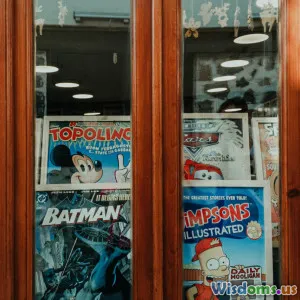
Why Some Video Game Adaptations Succeed While Others Flop on Screen
4 min read Explore why some video game adaptations thrive on screen while others fail, examining key factors behind their success or flop. (0 Reviews)
Why Some Video Game Adaptations Succeed While Others Flop on Screen
Video games have evolved into a massive cultural phenomenon, spawning complex stories, fervent fanbases, and immersive worlds. It’s no surprise then, that Hollywood and other studios have sought to capitalize on this property's popularity via adaptations into movies and TV series. Yet, the track record of video game adaptations on screen is decidedly mixed — some resonate with critics and fans alike, while many fall flat, becoming infamous flops.
What makes certain adaptations like the “The Witcher” series or more recently “The Last of Us” TV show successful, whereas others such as the 2003 film “House of the Dead” or 2019’s “Detective Pikachu” (to a lesser extent) receive negative reactions? Let’s dive into the essential factors that shape these outcomes.
Authentic Storytelling: Honoring the Source Material
One of the primary reasons successful adaptations shine is their respect for the original story and its spirit. Unlike generic reboots, successful adaptations often embrace the complexities of the game’s narrative, characters, and thematic essence.
Take The Last of Us (2023, HBO), which was universally praised for its poignant storytelling and character development, comparable to the original 2013 video game created by Naughty Dog. This series respected the game’s emotional core, demonstrating that engaging storytelling is key to bridging interactive narratives to a passive format.
In contrast, many flop adaptations simplify or drastically change storylines, alienating core audiences. For instance, Super Mario Bros. (1993) strayed far from its source material, mashing together sci-fi and urban dystopian themes that confused both gamers and general viewers. This lack of fidelity can dilute the narrative's charm and unique appeal.
Key Insight:
- Faithfulness doesn’t mean a frame-by-frame recreation but capturing essence, tone, and character depth.
- Adaptions that understand and invest in the lore succeed.
Understand the Audience — Balancing Fans and Newcomers
Another crucial dynamic is addressing dual audiences: the loyal fans who cherish the original video games and the newcomers unfamiliar with the source material. How these groups are handled often determines commercial and critical success.
Successful adaptations, like Detective Pikachu (2019), hit this balance well by delivering humor, action, and a visually appealing world to charm children and non-gamers, while including subtle easter eggs and faithful depictions to satisfy longtime fans.
Conversely, when a movie leans too heavily either way, problems arise.
Rate the Post
User Reviews
Popular Posts



















